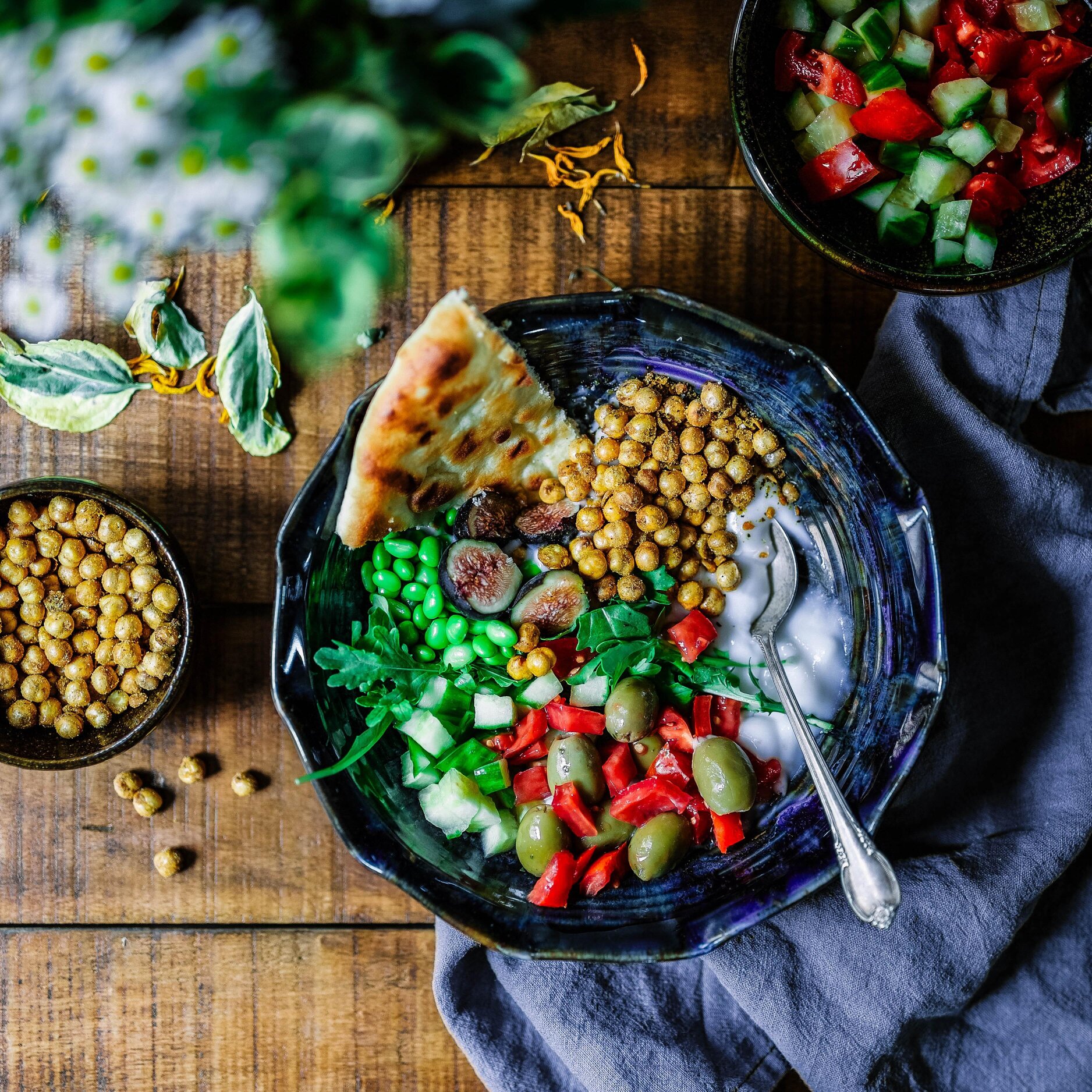The six tastes of Ayurveda should be included in your diet to maintain nutritional balance.
What is the best meal you’ve ever eaten?
Imagine it now: what do you see, what do you smell, what do you taste?
Taste has a strong pull for humans. We have emotional connections to tastes; your mom’s chocolate chip cookies she always made for your birthday, the taste of the Brussels sprouts your grandma made you eat against your will. And we have strong biological connections to taste as well. Taste indicates to the body what kind of nutritional value a food has; sweet will comfort us, spicy will warm us up.
In Ayurveda, it’s said that digestion starts the moment food hits your mouth. There are approximately 10,000 taste buds in the mouth, and only about 8,000 of them are on the tongue. The remaining taste buds are on your lips, cheeks, the roof of the mouth and throat. These taste buds help to signal your body to release the appropriate enzymes needed to break down the given food.
The Six Tastes of Ayurveda
Madhura (Sweet)
Madhura is the sweet taste found in food, which is comforting and fulfilling in small doses. Madhura is high in the elements of earth and water and is balancing to Vata and Pitta Doshas. Too much sweet can send Kaphas off-kilter.
While there are many different sources to get our sugar fix, the best sources are sweet fruits, starchy vegetables, grains, wheat products, dairy products like milk and cheese, and natural sweeteners like honey and maple syrup.
Sweet foods prevent dehydration by increasing moisture in the body and can help with constipation. Sugary foods can also help balance hormones, soothe mucus membranes, and can contribute to beautiful, glowing skin.
But eat in moderation, as sweet foods in excess can contribute to weight gain, diabetes, and heart disease.
Amla (Sour)
Amla is the sour taste, made up of earth and fire elements. Sour foods can aid digestion and help nourish the organs and blood. Amla is very balancing to Vatas, who generally have a weak digestive fire. Pittas should avoid sour foods if they feel they have excess heat in the body. Kaphas should moderate the amount of sour food in their diets.
The best sources of sour taste are lemons, limes, grapefruit, apple cider vinegar, fermented foods, and dairy products like yogurt, sour cream, and kefir.
Sour foods can help the digestive processes in your body, allowing your body to break down food more efficiently. Sour foods also help to energize the body and can improve your circulation.
Too much sour in the diet can lead to hyperacidity, diarrhea, excessive thirst, and cause eczema flare-ups.
Lavana (Salty)
Lavana is the salty taste found in food and made up of water and fire. Salt helps to enhance the flavor of food and also helps to energize us, aids in digestion, and can help with nutrient absorption in the body. Salty taste can be very balancing for Vata, but excessive salt can be irritating to Pitta and Kapha Doshas.
Good sources of salt can be found, of course, in salt, but also celery, olives, tamari, sea vegetables, soy sauce, and miso.
Excessive salt, primarily found in processed foods, should be avoided. Too much salt in the diet can lead to hypertension, dehydration, intestinal inflammation, and bloating.
Katu (Pungent)
Katu is the pungent taste found in spicy foods, garlic, onions, ginger, and radishes. The pungent taste is made up of fire and air and is best for Kaphas. Vatas can benefit from a moderate amount of pungent food but should be careful as it can be drying for them. Pittas do best with the least amount of pungent food due to its ability to overheat.
Warming foods like chilies, black pepper, chili powder, ginger, and mustard are also excellent sources of the pungent taste.
Pungent foods can help aid the digestive fire and help the body detoxify. Pungent tastes can help with weight loss, and warming pungent foods can help clear the sinuses.
Tikta (Bitter)
Tikta is the bitter taste made up of air and ether elements. Bitter flavors are most balancing for Pitta and Kapha Doshas. Bitter foods help to detoxify the body and help with a cleansing mechanism of the body called lekhana, which is the scraping of fat and toxins from your body.
Excellent sources of bitter tastes are raw kale, collard greens, Brussels sprouts, fenugreek, dill, turmeric, cacao, coffee, most teas, zucchini, and eggplant.
Kashaya (Astringent)
Kashaya is the astringent taste, known for causing a dry feeling in the mouth or causing you to pucker your mouth. Made up of air and earth elements, this taste is most beneficial to Pitta and Kapha Doshas.
Astringent tastes can be found in cranberries, unripe bananas, pomegranates, green beans, legumes, turnips, and artichokes.
Astringent foods are cooling and grounding. Astringent foods can help combat diarrhea, and water retention can help aid the process of lekhana (scraping fat from the system) and are anti-inflammatory.
The Take-Away
Ayurveda believes the six tastes should be consumed every day to promote balance within the body.
Vatas should focus on more sweet, salty, and sour tastes in their diets and limit pungent, bitter, and astringent tastes.
Pittas need sweet, bitter, and astringent tastes more than pungent, sour, and salty tastes.
Kaphas should incorporate more bitter, astringent, and pungent tastes in their diet and decrease sweet, salty, and sour tastes.
Taste is an important function of our body, and Ayurveda recognizes the essential role it plays in our health. When we focus on the six tastes, we can intuitively create nutritional meals that will nourish our bodies and learn to eat mindfully.
Think back to that meal again, which of the essential six tastes can you find?




